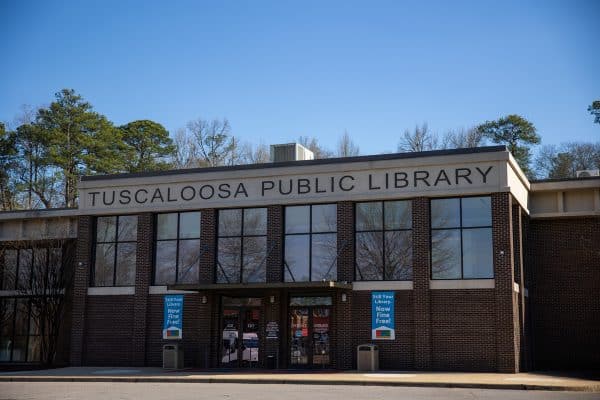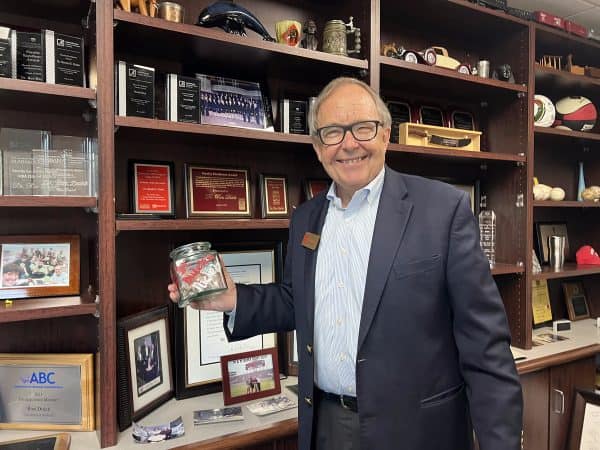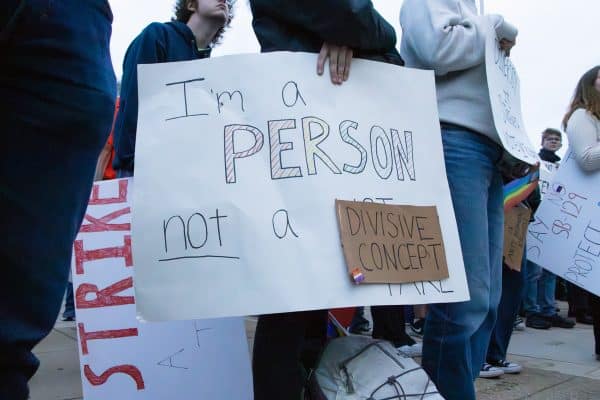Opinion: Decriminalize it! Alabama’s uncertain future with cannabis
March 2, 2022
What is SB 46?
On May 17, 2021, Alabama became the 37th state to legalize medical marijuana. A 102-page bill, SB 46 was authored by Republican Sen. Tim Melson who represents Alabama’s 1st District.
SB 46 represents history in the making. It legalizes the use of medical cannabis for the following disorders and illnesses: autism spectrum disorder, cancer-related cachexia, Crohn’s disease, depression, epilepsy or conditions causing seizures, HIV/AIDS-related nausea or weight loss, panic disorder, Parkinson’s disease, post-traumatic stress disorder, sickle cell anemia, spasticity-related diseases, terminal illnesses, Tourette syndrome, and chronic pain.
Under SB 46, medical marijuana can be sold in tablets, capsules, tinctures, gels, oils, creams, suppositories, transdermal patches, nebulizers and liquids, or oils for use in an inhaler. Marijuana cannot be sold as “raw plant material,” products to be smoked or vaped, or in food products.
The Alabama Medical Cannabis Commission will oversee the sales of marijuana in the state. The commission consists of a 14-member board of medical, legal and agricultural professionals who will manage a seed-to-sale program.
Alabama’s historical attitude toward drug use and imprisonment
In Alabama, possession of marijuana without a medical marijuana card or a cultivation license will remain a Class B felony. Class B felonies typically result in jail sentences of two to 20 years, with fines up to $30,000.
Alabama has historically had an intolerant attitude toward marijuana usage. With this atmosphere of stringent policing and harsh punishments, the future of medical marijuana looks dangerous.
There are many obstacles to medical marijuana usage in the state of Alabama that SB 46 will have to overcome. The Alabama Appleseed Center for Law and Justice writes that “Alabama’s failure to expand Medicaid limits public funding of drug treatment and rehabilitation. Options are patchy and underfunded, leading to overreliance on prisons for people who need medical treatment, not punishment.”
Finances aren’t only a barrier to medicine and health; they’re also a barrier to democratic ideas, such as voting. Alabama law denies voting to thousands of eligible Alabamians who cannot repay court fines and fees.
“All Alabamians deserve equal justice under the law,” said Alabama Arise, a nonprofit that works to promote state policies that improve the lives of low-income Alabamians. “But from court fees to civil asset forfeiture to capital punishment, our state’s justice system contains a range of policies that often take a heavier toll on people who live in poverty.”
Nonviolent drug offenses, prisons and people of color
In fact, drug offenses account for more felony convictions and new prisons than any other offense, says the AACLJ. The Alabama Sentencing Commission reports that felony convictions for drug possession alone rose 25% from 2017 to 2019.
This strict policing of drug usage has lasting effects in the state. According to the Prison Policy Initiative, a nonprofit aiming to expose the harms of mass incarceration, Alabama has a ratio of 946 inmates per 100,000 citizens, the fifth-highest incarceration rate in the world. This horrifying reality must be remedied.
Unfortunately, the state has no plans of slowing down its mass incarceration. In October 2021, Gov. Kay Ivey signed a $1.3 billion prison construction bill into law.
“Achieving a solution to our problems rather than a court mandate was paramount, and that’s what happened today,” Ivey said before signing the bill.
There is nothing paramount about strengthening a police state. Alabama politicians completely ignore the prison crisis in favor of profitable private prisons.
“Our system is in a current humanitarian crisis. And every question cannot be answered with new prisons. The buildings will not do anything with the culture of corruption in our prisons,” said state Rep. Chris England, the chair of the Alabama Democratic Party.
The bill puts the state in debt of $785 million, while another $400 million from the $2.1 billion COVID state relief funds went into funding the two men’s prisons.
State Senate Finance and Taxation General Fund Chair Greg Albritton said that the bill is a “huge step in curing many of the difficulties we have.” This rhetoric is archaic and tired, and it needs to end. The best way to cure the difficulties happening in Alabama prisons is not to build more; it’s to decrease the prison population as a whole.
Decreasing the prison population begins with expunging all incarcerated people with nonviolent drug offenses. This alone will decrease nearly 15% of Alabama’s entire prison population, according to Alabama Appleseed.
Decriminalization of drugs
SB 46 is a surprising step forward, but it’s an embarrassing compromise that still restricts and criminalizes marijuana use for those who do not have life-threatening, debilitating diseases and illnesses.
A poll conducted by Yahoo! News and Marist found that around 75% of marijuana users do not use the drug for medical or pain purposes but recreationally, for relaxation, socialization and creativity. Marijuana deserves decriminalization.
It’s important to note that America’s attitude toward drugs has been hostile and dangerous since President Richard Nixon declared a war on drugs in the ’70s. The war on drugs, rather than improving the health of American communities, has failed, the Global Commission on Drug Policy said.
“Arresting and incarcerating tens of millions of these people in recent decades has filled prisons and destroyed lives of families without reducing the availability of illicit drugs or the power of criminal organizations,” the commission concluded.
The response from states like Oregon has been to decriminalize drugs, and sometimes all of them.
“Criminalization keeps people in the shadows. It keeps people from seeking out help, from telling their doctors, from telling their family members that they have a problem,” said Mike Schmidt, district attorney for Multnomah County, Oregon, home to Portland. Schmidt supported Measure 110, which legalized and decriminalized all drugs in Oregon.
The result? A decrease in opioid-related emergencies, found several studies. In a state like Alabama, where the opioid crisis is rampant, especially in rural communities, the legalization of drugs, especially marijuana, could be a game-changer.
Portugal, which decriminalized drugs in 2001, has seen more than just a decrease in opioid-related incidents. The nation, which used to have the worst rates of drug use in the European Union, now has rates far lower than the European and U.S. averages. Drug treatment percentages increased, HIV diagnoses dropped dramatically, drug overdose fatalities declined, and court cases for drug offenses dropped by more than 60%, according to the Drug Policy Alliance.
Not only does drug decriminalization have the ability to save states and countries money, it has the ability to save livelihoods lost to the dangers of underground and illicit drug abuse and addiction.
By decriminalizing drugs, the stigma surrounding seeking help also drastically decreases, leading to a more accepting and healthy society overall.
Only 18% of people with drug use disorders receive treatment for their addiction, according to the National Institute on Drug Abuse. “Stigma impedes access to care and reduces the quality of care individuals receive. People with addiction, especially those who inject drugs, are often distrusted when presenting for care in emergency departments or when visiting other providers. They are often treated in a demeaning and dehumanizing way,” the institute said.
The National Survey of Drug Use and Health reported that “fear of negative opinions by neighbors or people in their community is one of the reasons people who know they need treatment for a substance use disorder avoid seeking it.”
Stigma kills. Decriminalization and compassion are proven to save and remedy ongoing crises.
What can be done?
There is no better time than now to decriminalize natural drugs like marijuana. Not only will it alleviate the ongoing crisis in Alabama prisons, natural drugs have an array of health benefits, like reducing anxiety, relieving pain, killing cancer and slowing tumor growth, and stimulating appetites in people with cancer and AIDS.
There are several student organizations at the University that focus on or feature issues involving the corrupt prison system and its relationships to drugs, like Tide Against Time and AL Students Against Prisons. This is an issue that students care about, and it is through their efforts that we may see the end of mass incarceration.
Every student can be a part of the solution. Contact your Alabama state representatives and state senators to let them know that community health and safety must be a priority, and that building more prisons is not reflective of the legacy we want to build.
If Alabama wants to prove itself to be a leader in the future, it needs to stop compromising on what a majority of Americans want and decriminalize nature, once and for all.
This story was published in the Health Edition. View the complete issue here.
Questions? Email the opinions desk at [email protected].











